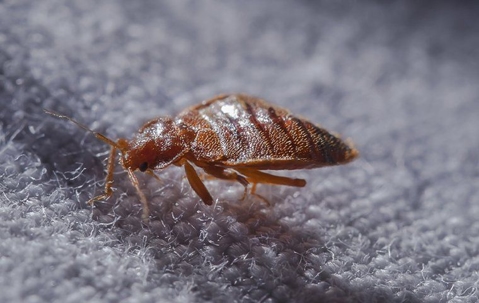Bed Bug Exterminator Houston Treatment: Specialized Approaches for Elimination
Bed Bug Exterminator Houston Treatment: Specialized Approaches for Elimination
Blog Article
Efficient Parasite Control Steps to Safeguard Your Yard and Plants
In the realm of horticulture, the harmony of a well-tended garden can often be interrupted by undesirable bugs that intimidate the health and wellness and vigor of plants. As gardeners strive to maintain a flourishing outside room, the difficulty of parasite control becomes a vital facet of their gardening undertakings. Carrying out reliable pest control gauges not just safeguards the garden's visual allure yet also plays an essential role in preserving the plants' health. By exploring a series of strategies that include natural repellents, advantageous pests, buddy planting, do it yourself options, and environmentally-friendly chemicals, gardeners can navigate the intricate world of parasite monitoring with accuracy and treatment.
All-natural Pest Repellents

One more reliable natural parasite repellent is diatomaceous planet, a powdery compound made from fossilized aquatic organisms. Diatomaceous planet works by physically hurting insects with its abrasive appearance, making it an outstanding option for controlling parasites like slugs, beetles, and caterpillars. Furthermore, growing friend plants like marigolds, lavender, or basil can help fend off bugs as a result of their solid aromas or natural chemical substances.
Beneficial Pest for Pest Control

One more useful insect is the parasitic wasp, which lays its eggs inside insect bugs, ultimately eliminating them. Ground beetles are excellent for regulating caterpillars, snails, and slugs. Hoverflies, often incorrect for bees because of their comparable look, eat aphids, thrips, and caterpillars.
To bring in useful insects to your yard, you can grow a diverse variety of flowering plants, such as dill, fennel, and yarrow, which give nectar and pollen for grown-up bugs. In addition, avoid utilizing broad-spectrum chemicals that can hurt both dangerous and useful insects. By producing a welcoming setting for these beneficial insects, you can decrease the requirement for chemical pesticides and promote a healthier, more balanced yard community.
Buddy Planting Methods
When intending to boost the effectiveness of useful pests in your yard for natural parasite control, thinking about companion growing approaches can even more enhance the ecosystem balance. Buddy growing includes purposefully placing particular plants next to each other to optimize their common benefits, such as preventing pests, attracting beneficial bugs, or boosting vitamins and mineral uptake - bed bug exterminator houston near me. One popular instance is planting marigolds alongside additional hints tomatoes to fend off nematodes and various other damaging pests while additionally drawing in pollinators
Furthermore, including aromatic natural herbs like basil, mint, or rosemary in between vegetable rows can help deter bugs with their solid scents. One more effective technique is planting flowers such as sunflowers, zinnias, or universes to draw in pollinators like bees and butterflies, which in turn can help in pollinating your fruit and vegetable crops. Moreover, growing trap plants like nasturtiums can divert bugs far from your primary crops, acting as sacrificial plants that safeguard your important produce. By carrying out companion growing approaches, you can produce a diverse and harmonious garden community that naturally controls insects while advertising plant health and performance.
Do It Yourself Bug Control Solutions
To efficiently take care of pests in your yard, applying diy insect control services can be an affordable and environmentally friendly method - bed bug exterminator houston near me. Setting up physical barriers like row pop over here covers or netting can also prevent insects like caterpillars from damaging your plants.
Friend growing particular herbs and flowers like marigolds, basil, and lavender can aid fend off pests and bring in advantageous bugs. By including these DIY insect control options into your horticulture routine, you can secure your garden and plants without counting on harsh chemicals.
Environmentally-Friendly Pesticides

One more effective choice is diatomaceous earth, an all-natural compound made from fossilized marine organisms, which can be sprayed around plants to regulate slugs, snails, and various other creeping bugs. Furthermore, insecticidal soaps and oils stemmed from plant-based sources are valuable for controlling soft-bodied parasites like aphids, mites, and whiteflies.
Conclusion
Finally, effective insect control measures such as natural repellents, beneficial pests, buddy planting approaches, DIY options, and environmentally-friendly pesticides are vital for protecting your garden and plants. By implementing these approaches, you can protect against damage triggered by insects and preserve a healthy and thriving garden community. It is necessary to take into consideration the long-term effect of making use of chemicals and decide for more lasting and environment-friendly options to ensure the wellness and wellness of your plants and the environment.
Report this page